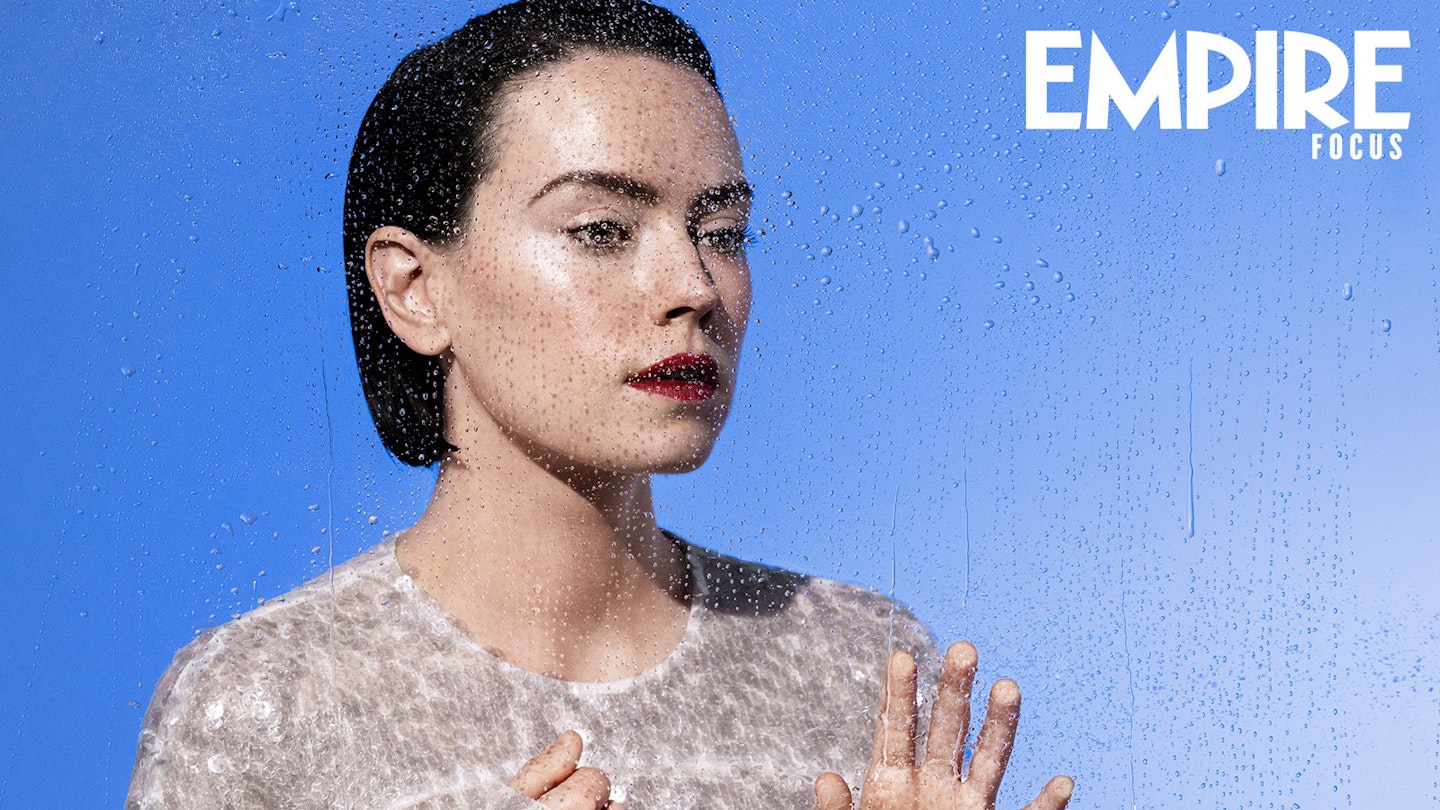Having survived a feverishly debated Star Wars trilogy, Daisy Ridley is forging her own path – and taking control.
For Daisy Ridley, the thrill comes first and the fear comes later.
While wading in the middle of the Black Sea for Joachim Rønning’s rousing 1920s-set biopic Young Woman And The Sea, in which she stars as Trudy Ederle, the first woman to swim across the English Channel, Ridley’s aversion to open-water swimming confronted her fully. “You know when you go in the sea?” she asks. “I never go beyond where I can see my feet. The whole thing was such an exploration of things I don’t really like.” Her voice sing-songs: “The lies we tell for the jobs we do!”
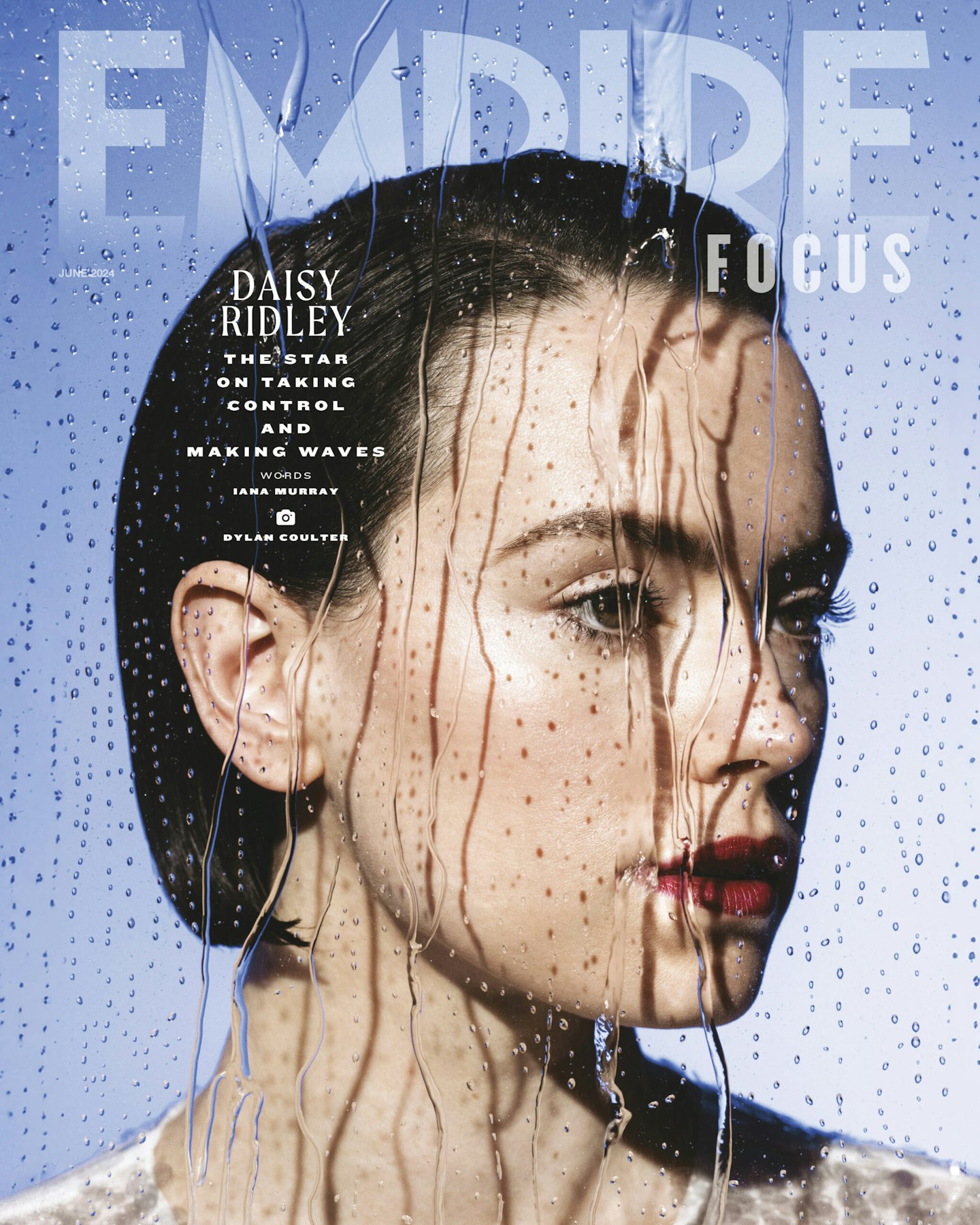
Of course, the London-born actor is well-acquainted with treacherous waters. At the age of 21, Ridley was plucked from anonymity to lead the Star Wars sequel trilogy as Rey, a preternaturally gifted Jedi whose fraught lineage is perhaps one of the most debated plot- twists in modern movie history. No pressure when your CV to date mainly consisted of a bit-part on Casualty and a Morrisons ad.
A decade later, Ridley’s ludicrously busy calendar speaks to the ways she’s taken her career by the reins, honing in on subdued character dramas about women who correct their futures through their own sheer will. The stakes vary, from an introvert struggling to connect (Sometimes I Think About Dying) to an athlete achieving superhuman feats (Young Woman And The Sea) to a child actor’s mother failing to keep her marriage together (the forthcoming Magpie, which she conceived and co-wrote). Add to that a step-up behind the scenes — she has production credits on all three of those films — and it’s clear that she’s levelling up. And then there’s the upcoming Rey movie, which promises Ridley’s return to Star Wars and all the exhilarating and terrifying wonders that entails.
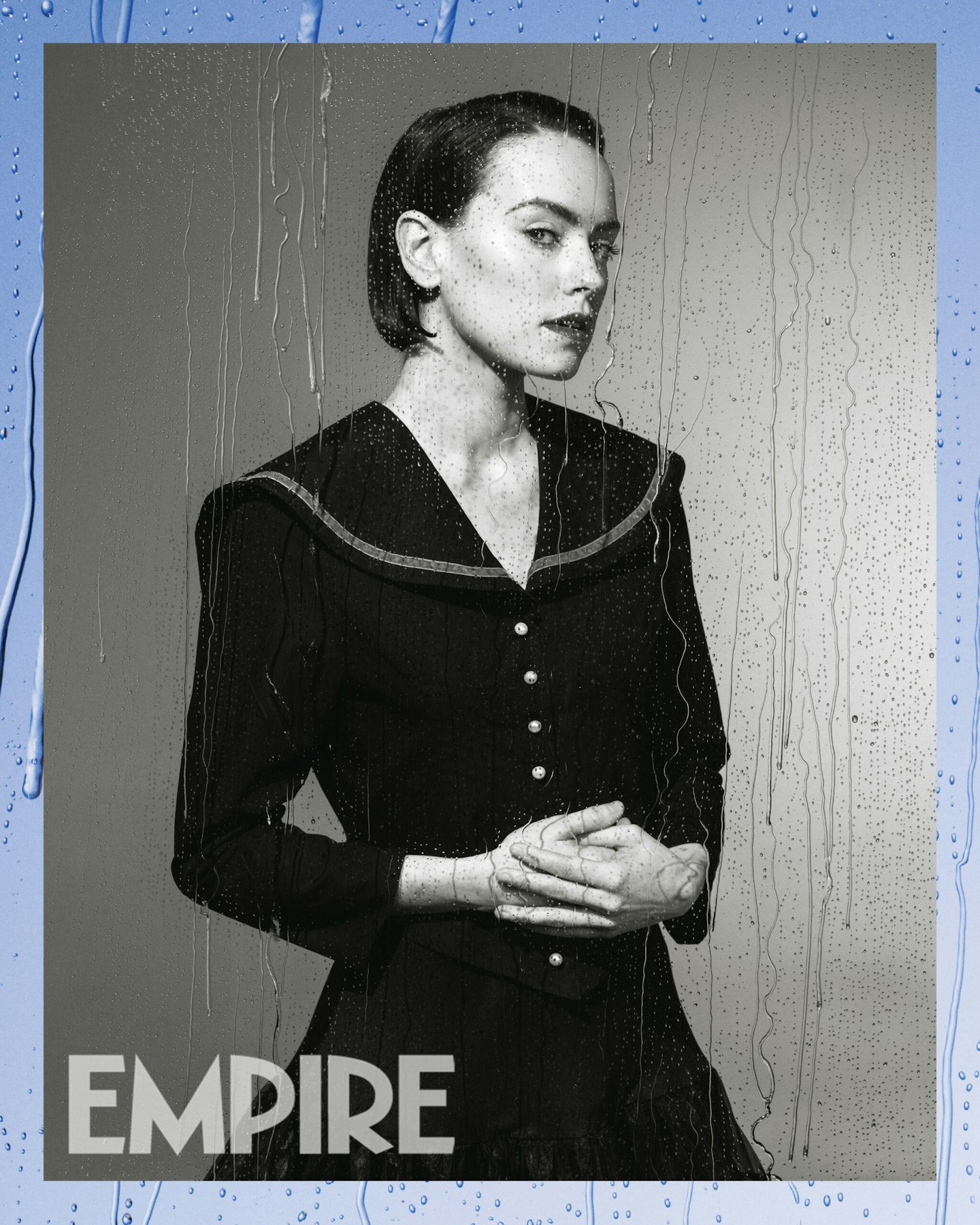
Calling Empire on a morning off while she films survivalist thriller We Bury The Dead in Australia, she opens up about what it means to dive back in.
At the beginning of Young Woman And The Sea, Trudy only knows how to doggy paddle. It looks like really hard work to fake being a bad swimmer.
Doing the doggy paddle was the worst part of all of the swimming. It’s the time when we’re in these very intense costumes, like the bloomers and the dress. That day where we went in and did our test for the coach was so rough. I could honestly barely breathe. It is such an intense waste of energy. So ridiculous compared to the crawl. That was really the hardest day filming. By the end of it, I couldn’t believe how much better I’d gotten at swimming, because when I first started training, I literally couldn’t do a length. We went to a 20-metre pool, and I got to halfway and stood up and was like... (Heavy panting)
Was there anything surprising you discovered in your training?
The injury I actually sustained was the moment in the film where I’m dragged out of the water. Because I had to slump over Christopher Eccleston (who plays her ill-intentioned coach Jabez Wolffe), I ripped some muscle in [my arm]. And then I have mad ear issues now from just the intensity of the swimming. I basically had a chronic ear infection the whole time, and now I have a thing with my eardrum, so my hearing went a bit funny.
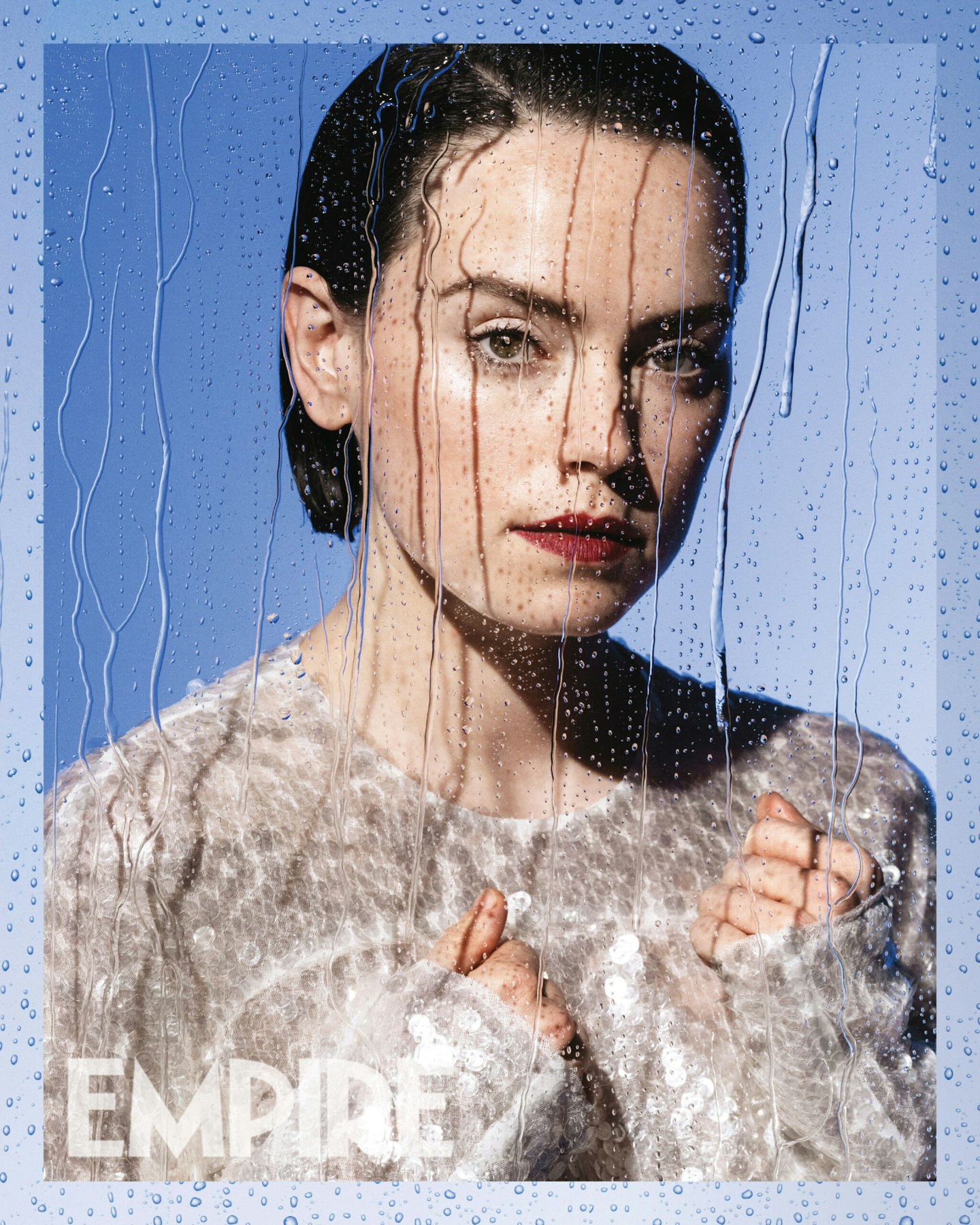
One image that really stands out is when the camera looks up at Trudy from underwater and she’s beaming. There are films about the hardships that athletes endure, but here, what overrides that is the pure joy she gets out of swimming. Did that resonate with you?
I’m glad you feel that because, obviously, what the swim represented was so huge in a social way, but my feeling was that I wanted to play Trudy loving swimming. Who knows how she really felt, because there isn’t so much [information] about what was really motivating her except for the fact that she was so gutted that she didn’t win gold at the Olympics. But I wanted this to feel like someone who just loves what they’re doing. And I wanted the feeling that everything she does, she’s able to do because of the support of her family. I wanted this to feel like a love story between her and her sister.
You’re an executive producer on the film, and a producer on Sometimes I Think About Dying and Magpie. Is there something you get from having that creative control that you don’t necessarily find in acting alone?
At work, I’m generally treated like an involved partner. I was very thrilled to be given the credit on Young Woman. I had been attached to the film for a little while, and then I was doing accent prep on the film, which was quite revealing, so I gave loads of script notes. And so that was sort of the beginning of it. I was consulted and involved in creative chats about lots of stuff, so for something like this, it was pretty mega to be given the executive producer credit. Even on [We Bury The Dead] I was like, “I’m gonna come in as an actor and not get involved in any other way.” [But] I just can’t seem to help myself anymore. I’m like, “Let’s have a chat about the script!”
"There was a lot of support given [on Star Wars], but nothing can really prepare you for what you're going to go through."
Your recent roles have this contrast to Star Wars, which is all about maximalism and a heart-on-your-sleeve approach to emotion. With these last few films, character-wise, you’ve dealt a lot more with interiority.
I suppose the thread I have found with them all is that they’re all overcoming something. With Sometimes I Think About Dying, it’s merely being able to maintain a conversation with someone in a social situation. And with Trudy, it’s overcoming a feat that has literally never been done by a woman. They’re two very different things, but both are struggling for something. So that’s what I tend to find not at the time, but after the fact.
Jumping back to Star Wars, how prepared were you for how that was going to affect your life?
There was a lot of love and protection. I can’t really remember that well — it was ten years ago. There was a lot of support given, but nothing can really prepare you for what you’re going to go through on an individual level.
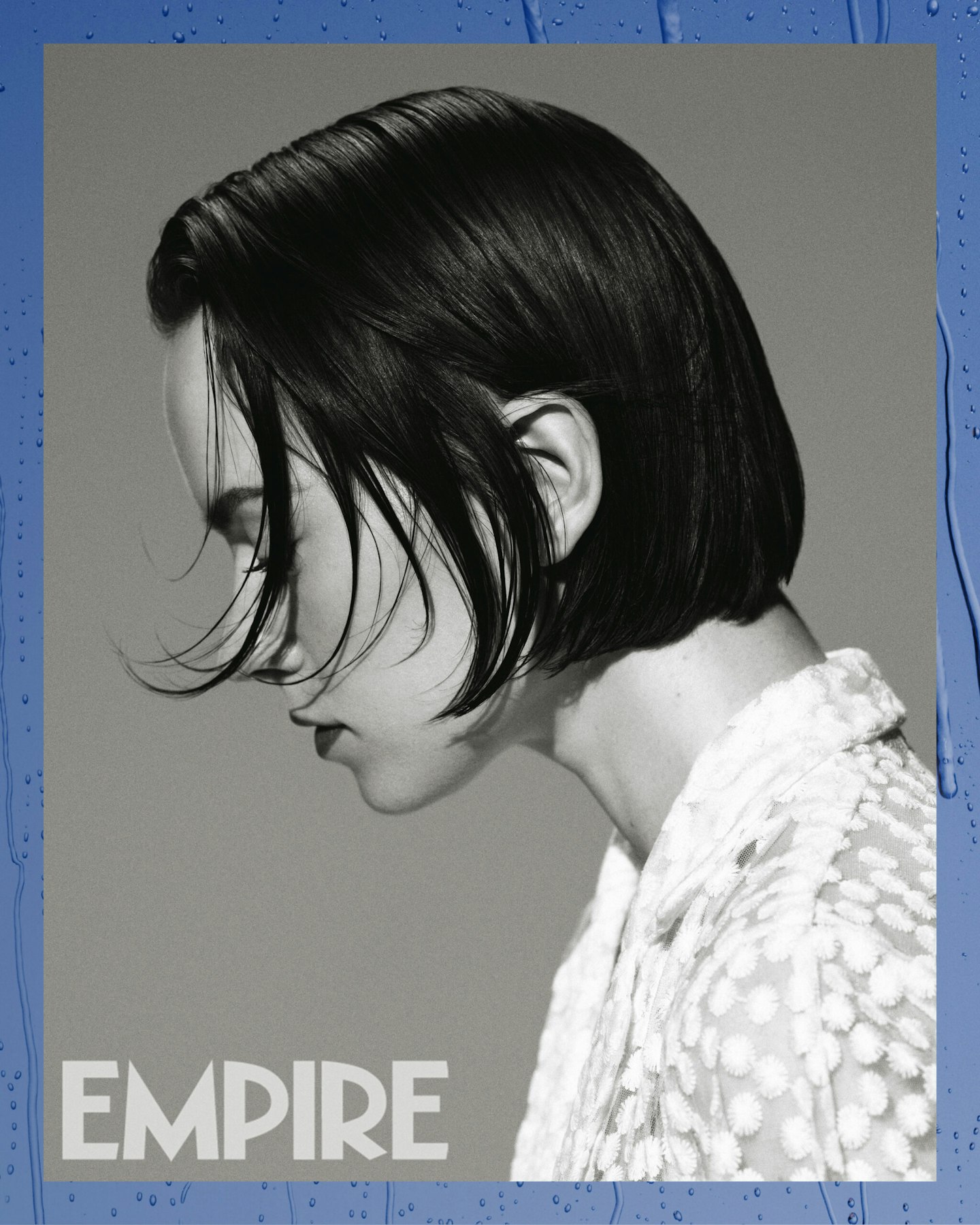
You were also pulling pints in pubs before you got cast. That’s a rapid lifestyle adjustment that no-one can really be ready for.
I think when everything actually happened, I stayed at home and sort of was like, “Okay!” There’s a craziness, and then everything goes away again, which is great. For all the people going, “Your life is going to change,” it did in some ways, and then you just go to your mum’s house and you’re like, “Okay, this is nice.” Having such a solid foundation was the absolute best thing for me. Obviously, on a professional scale, things changed, and [in terms of ] anonymity, things change, but only actually really briefly. There were a lot of changes, but also many things stayed the same.
And now you’re preparing to star in another Rey film. Was it a difficult decision to come back?
It wasn’t a difficult decision. I didn’t say yes right away, Kathy [Kennedy, Lucasfilm president] was like, “Take as long as you need.” It was actually really funny, on the way there [to meet Kennedy], I was on the phone to my best friend and he goes, “Oh my God, Dais, imagine if they’re doing a Rey TV show.” And I was like, “Nah, we’re literally just going for breakfast.” And then I called him and I was like, “You will never guess what.” Why wouldn’t I [do it]? Yes, they have been divisive, but also they bring a lot of love and joy to a lot of people. It feels pretty amazing to be able to continue a character — like, can I even remember how to play her? It’s an interesting challenge as an actor to come back to something and try to figure out what’s changed for me and what’s changed for her.
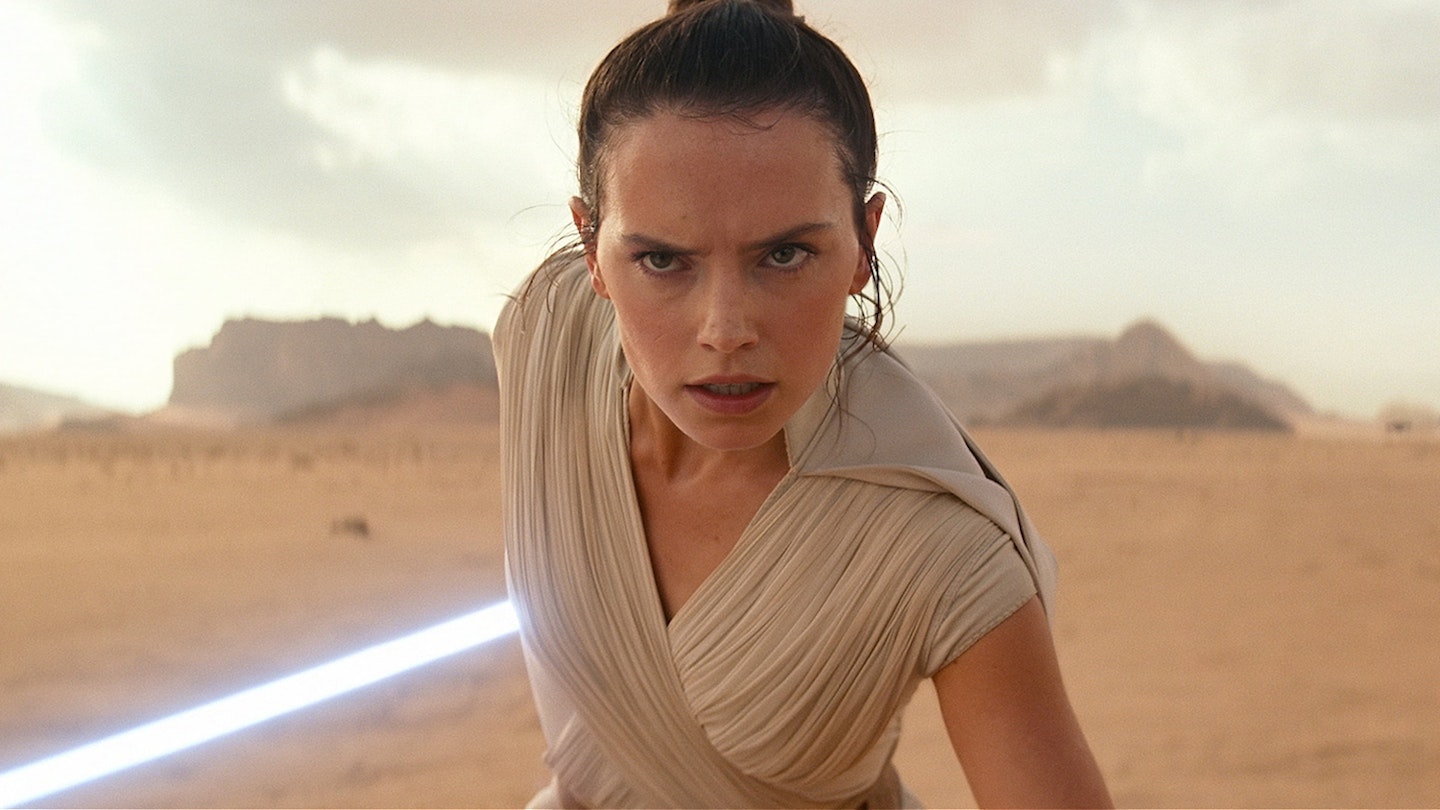
What are your hopes for Rey’s arc in this next film?
I honestly have no idea. I know the story beats, but other than that, I’m not sure what it’s going to be. But I’m reading a script next month. I’m curious about it all.
You said yes to joining the films the first time, of course, but does it feel like you’re coming back on your own terms?
Coming in a bit more eyes wide open, I suppose I feel more like I’m owning it. I suppose I owned it the first time. Basically, I’m an adult now.
I certainly did not feel like an adult at the time. Obviously, personally, things have changed, and professionally, I’ve had lots of other experiences, and so I definitely feel like it’s a different thing this time. There’s just a lot of joy with me and these films. Honestly, if I wasn’t excited, I wouldn’t have done it. It feels like a great thing to be part of.
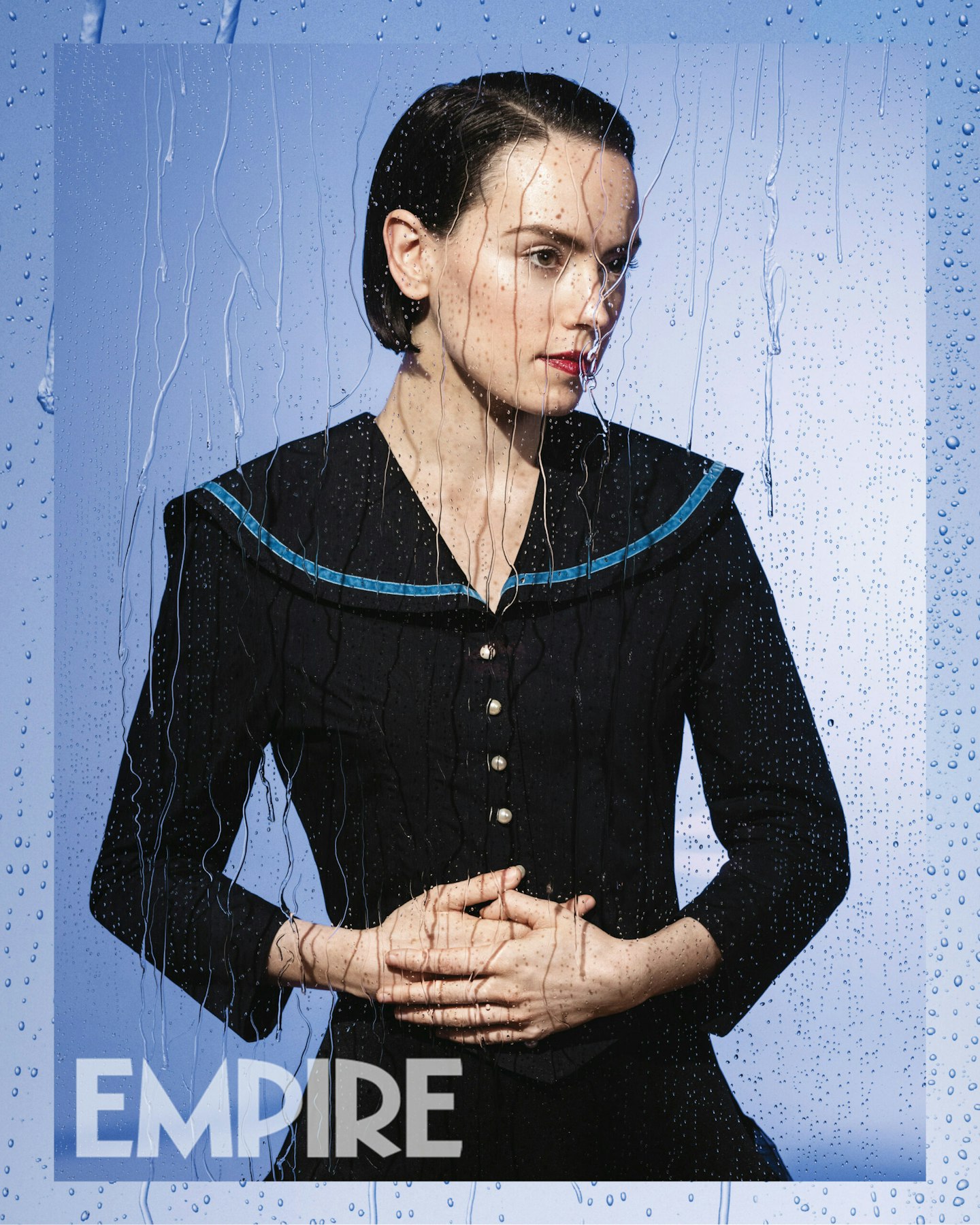
Since you’ve been stepping into the producer role and having more creative input in projects you’re making, have you felt you have more agency as an actor than you did ten years ago?
I think that’s because of J.J. [Abrams]. He was my first real working relationship as an actor, and he always made me feel like I had agency and was always part of conversations, and had the freedom at 21 years of age when I had never been on a set for longer than two weeks. He always heard what I had to say. And again, I don’t take that lightly, because I know that’s not the case for everyone. I feel like so many people have come before me in order that we, women particularly, have a voice on set and in working life. Starting off with J.J., who was the most respectful, wonderful, collaborative person, I always felt that. Now I probably have more cognisant agency, whereas before, it was just part and parcel of everything, and I wouldn’t have known that it was different to other people’s experience.
Chaos Walking is one of those films that had its hurdles and didn’t land how people wanted it to. How do you reflect on that experience and the reception to it?
Back when it came out, I was watching Mark Kermode, and once Chaos Walking flashed up... no-one has turned the TV off quicker than in that moment. I think that was a lesson in you just don’t know how things are gonna roll. And that is very much something I signed on to as an actor. I loved the initial script, the idea, the world. I love the books. You sign on and you do what you can. I’ve never really been asked about Chaos Walking.
"I want to be a working actor: that's my thing. And I'm doing it and it's pretty fucking great."
Really?
Yeah. Everyone was like, “We won’t mention it!” That’s something I really wasn’t involved with creatively. Not out of choice, just because it was one of those things. I was like, “This is great: I come in as an actor, do my thing and then off I go.” It’s so funny, we were watching a show and someone used the phrase, “It didn’t trouble the box office.” What can you do?
You’ve talked before about discovering the power of saying no. I’m curious about what it took for you to learn and absorb that.
It was one of the things I have learned over time. It is really hard being uncomfortable. “Do you want to go to a night out?” Ooh, don’t want to say no, but [I’m] feeling the pressure to do the thing. So on a small scale in that way, I think [it’s about] being more comfortable with being uncomfortable, because most of us are hardwired to not let anybody down. I can’t really give an example bar that, you know?
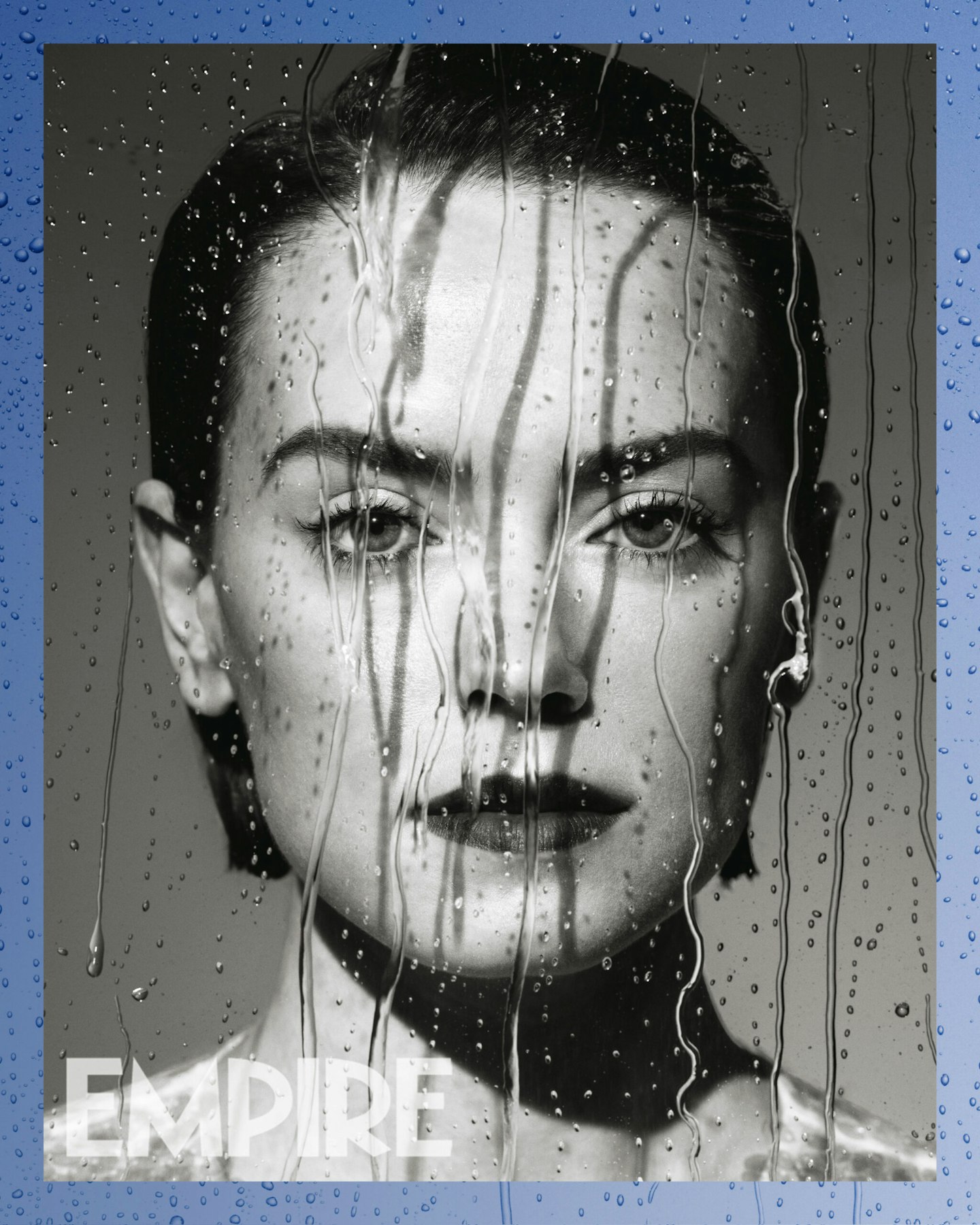
You’ve never felt uncomfortable in a work sense?
There was a moment on a film that I won’t name. There was an expectation that I would do this thing, and in that moment, there was a group of people stood around looking at me and it was incredibly uncomfortable to say no. And I was like, “No, and also, this isn’t the way that I should be being asked.” But then I left and cried, because it was uncomfortable being asked, and the way it was asked. It’s a film that has not been mentioned in this conversation. But again, I don’t think it came from a bad place. It was a stunt thing that I was being asked to do that was being asked not by the stunt team, which is where the problem lay. I’m pretty gung-ho, so I think over time people go, “Oh, okay, if you’ll do this, then we’ll do this.” I think so much of it is about that hardwired thing of not wanting to feel like a disappointment. You don’t want to hold things up. You don’t want to look difficult. Nine times out of ten, I would say I’ve not been in that situation.
Speaking from an outsider’s perspective, when an actor’s career takes off from a franchise, it seems difficult for them to extricate themselves from that property and establish themselves as an individual with their own artistic identity. Is that something you’re cognisant of?
I suppose the truth is, [Star Wars] will always be the first thing that is connected to me in my career. It’s something I’m aware of, but it’s also not something I feel is a difficulty. I feel very privileged to have done that role, and obviously will continue to. In the business way of things, I’m then lucky to have been able to go and do other stuff because of those films. So I don’t take any of that for granted. I want to be a working actor: that’s my thing. And I’m doing it and it’s pretty fucking great.
Young Woman And The Sea is in cinemas from 31 May.
